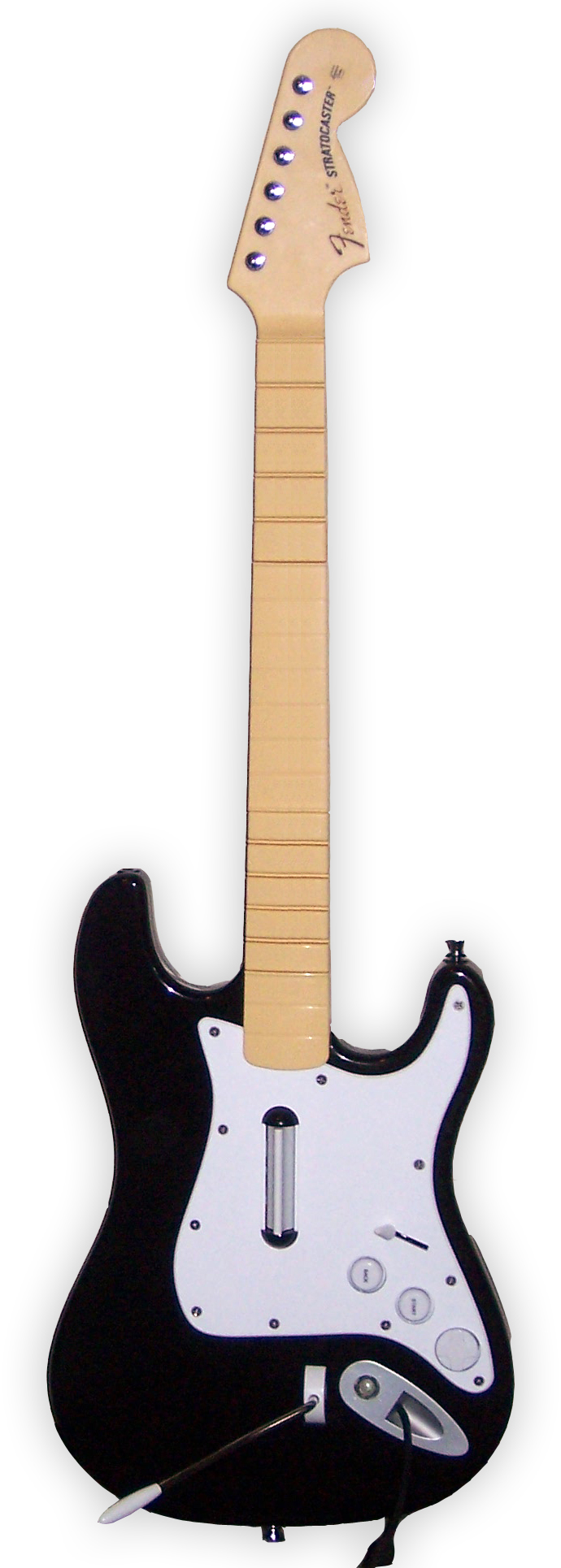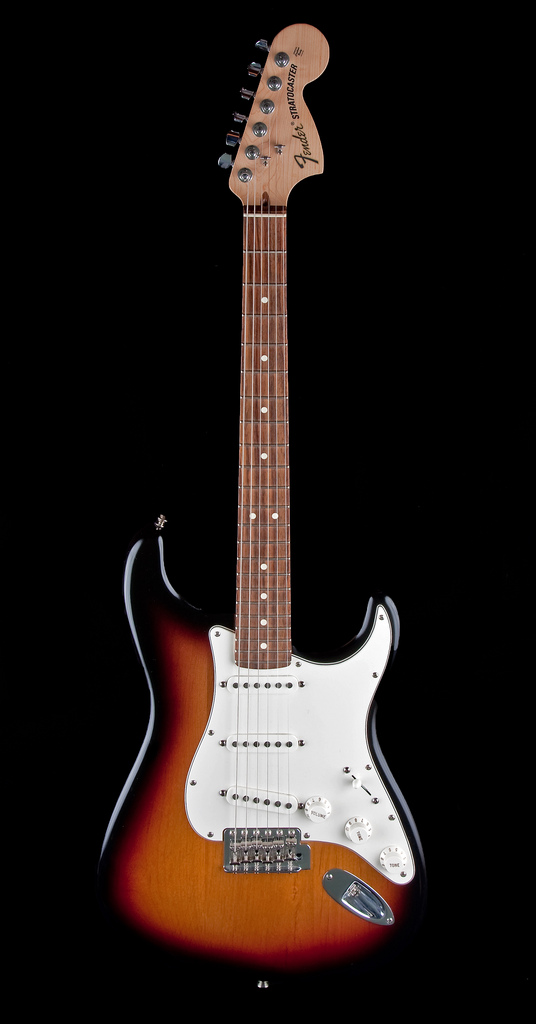I wish I could write more...
But anyways, my dad plays guitar. Not professionally or anything, but I'd say he's decent (that kind of sounds mean, doesn't it?). However, despite his guitar skills, he cannot play Guitar Hero or my recent purchase of The Beatles Rockband (which is a great game by the way). He just cannot get through a song on any difficulty without failing it.
The answer, it seems, is obvious at first; it could be said that he's playing a totally different instrument.
Exhibit A: "Fender" Rockband Controller.
Exhibit B: Fender Stratocaster (sexy, isn't it?)
Yes, they look
similar. But everything about them is different; the weight, the method of strumming, the way notes are played (on one of the guitars, there's only five options), and most importantly the sound, or lack thereof. So, sure, they're different things, but is it still a terrible difference? Shouldn't it be relatively simple for a guitar player to adjust?
With all great questions we turn to Google for the answer. In this case, I found an article dubbed "
Why Are Guitarists So Bad at Guitar Hero/Rock Band?". I'd suggest you read it before continuing (it's short). But, it you’re too lazy to read the whole thing, this is the ultimate answer to the question:
All of this is true because experienced guitarists have wired their brains to subconsciously feel out their musical surroundings “in real-time” and adjust tempo, pitch and even musical progressions accordingly. With a touch-and-go type of routine, musicians find it hard to re-train their brains to perceive music in a strictly methodical manner (and thus tell their hands to act accordingly). We feel the urge to pop out a solo, or break the chain of commands with a subtle tempo change.
I'm not a guitarist but I've been playing piano for nine years, cello for about four, and am level 8 (hopefully soon to be level nine!) in the Certificate of Merit program so I know music. And I can play these types of games great. I'm not trying to toot my own horn, but I can play these games on Expert and mostly score in the 90% total notes hit rate. So, why don't I have trouble playing such a "methodical" game?
It's not like I just picked up the guitar and played it near perfect on my first try. There was learning involved. I got my first Guitar Hero game probably about three or four years ago and gradually over time I got to the point where I can do pretty much any song on expert and pass it.
What does this say about guitarists playing these games?
They have trouble because they're playing a new instrument. As mentioned earlier, the Rockband guitar is just different enough where regular guitarists find it hard to play but just similar enough that they get embarrassed and angry when they can't play it. Because these guitarists get angry and get up, they don't actually want to practice the instrument (which is how you get good) and, thus, they never get better.
It's also interesting to note that the author says the "touch-and-go-type" feel of these games are what's hampering guitarists. Sure, the ability to interpret music is huge and I do it everyday, but when you're reading sheet music, do you usually do a lot of improvisation and changes from the music (unless you're really good)? The discs flying down the fingerboard of the guitar on the screen are exactly like notes on a staff and they are actually better than notes on a staff as there are only five notes possible on a Rockband guitar. What most people are doing while playing Guitar Hero are sight reading. Of course, knowing the song beforehand helps immensely (which is why these games focus mostly on popular songs/groups).
Here's a personal example: on the piano, I've been remarked as an excellent sight reader by evaluators and peers. However, when I sit down to play a piece I've never seen on the cello, I can't do it as well as I would on the piano because
I don't know the instrument as well. I've been playing that piano since childhood so it's almost a part of my being. But the cello came into my life rather late in the game and I don't practice it nearly as much.
It is not the programmatic nature or lack of interpretive, natural playing that makes these games so hard for guitarists (and I guess you could say musicians), but the fact that you are playing an instrument you have never played before. These games are not bad things for musicians at all, but rather as the article stated
"If nothing else, they can help with finger dexterity and rhythm!" along with sight reading, I might add.
So, in essence don't blame the game and simply, practice.
- Aidan
P.S: Rockband does have a keyboard accessory though I'm pretty sure it would require another compatible game and, of course, the accessory. It would interesting to play that on Rockband one day and revisit this question. Also, it would be cool to play this song on Rockband


